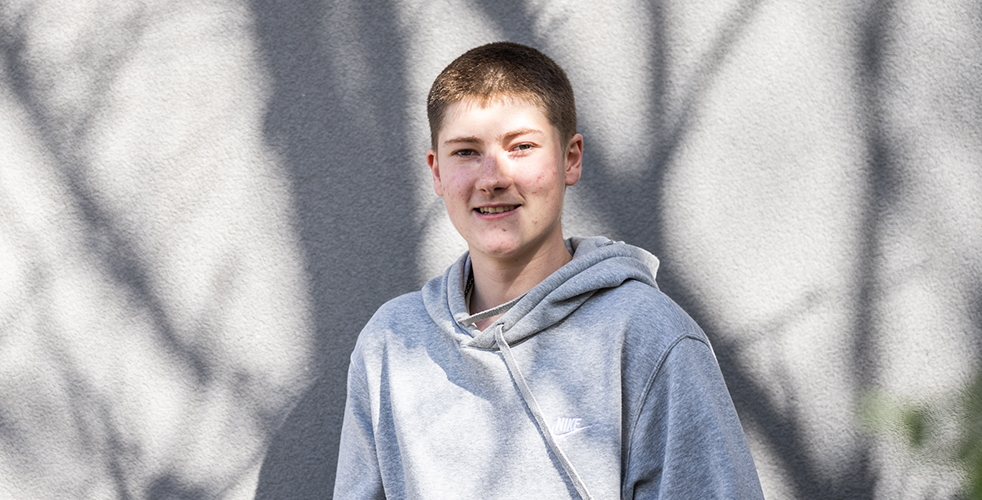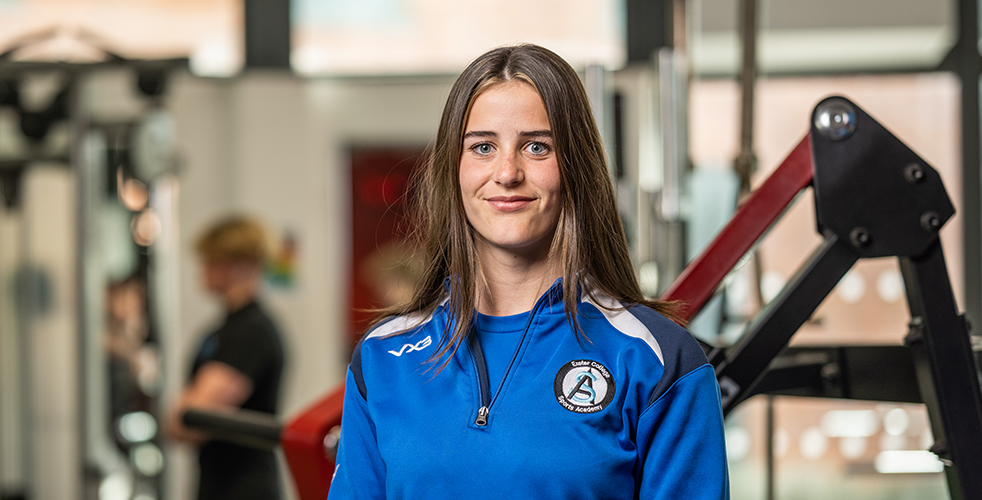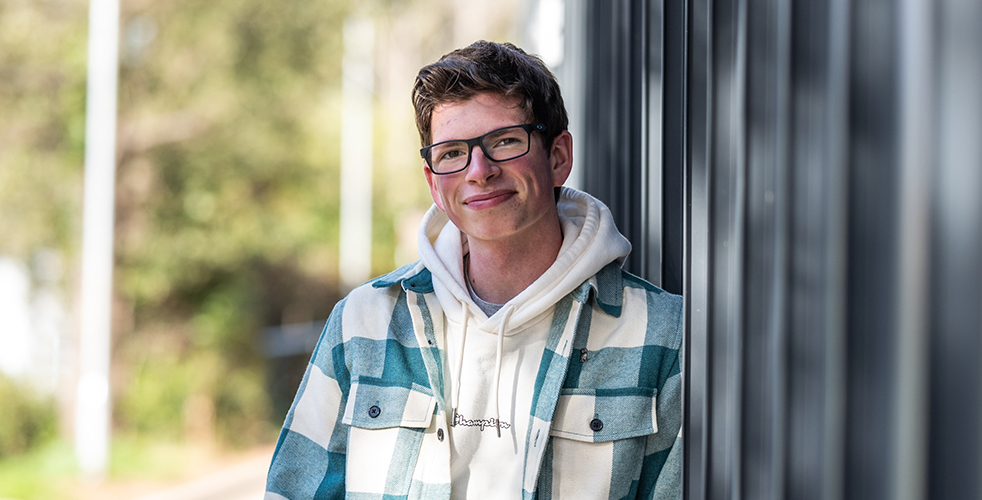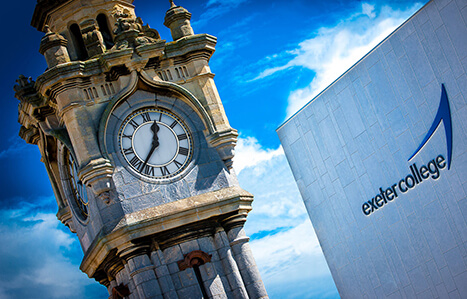Computer Science
Are you keen to understand how computing could change the world? If so, Computer Science is for you. It is all about designing new sets of instructions (algorithms) to solve new problems.
Course Information
- Course Type School Leaver
- Subject Area Science
- Qualification A Level 🧩
- Study Mode: Full Time
- Course Level Level 3
- Course Length 2 years
- Overview
-
This course can be combined with others and goes well with Mathematics (which is very highly recommended, we can’t stress this enough) and Physics. Further Mathematics is an excellent option for strong mathematicians who have the grade profile for a four A Level programme to take alongside these courses to help prepare them for courses at the top universities.
Computer Science is distinct from ICT and is a much more scientific and technical subject. In general, it is suitable for students who have an interest in programming and how computers work, or who may be considering studying a related degree at university.
The course has an emphasis on computational thinking: a kind of reasoning used by both humans and machines and is an important life skill. The study of computation is about what can be computed and how to then do the computation. Computer Science involves questions that have the potential to change how we view the world; for example, we may be computing with DNA at some stage in the future, with computer circuits made of genes. This leads to the question, does the natural world ‘compute’? Experimental Computer Science can be done with computers whereby we can learn more about the natural world by observing the behaviour of interacting software in a simulations.
Computer Science is about designing new sets of instructions (algorithms) to solve new problems. In this sense Computer Science is no more about computers than astronomy is about telescopes. Many great challenges lie in the future for Computer Scientists to solve and this course, with its emphasis on abstract thinking, general problem-solving, mathematical reasoning, scientific and engineering-based thinking, is a good foundation for understanding these future challenges.
This course is ideal if you love programming and want to work in computer science, software engineering or games development. It is best suited to those that love logic problems and working through complex algorithms. It is also the ideal course for anyone wanting to work with Big Data and the Data Scientists of the future.
You will be taught through lectures, practical classes, investigative problem solving and discussions. You will have access to fully equipped laboratories and PCs with many useful interactive resources.
Assessment is by examination, with some coursework in the second year. 80% examination and 20% assessed coursework (non-exam assessment).
What topics will I study?
The course is made up as follows:
Paper 1 – 2 hour 30 min on-screen exam: Covering your programming skills, knowledge of algorithms and the theory of computation.
Paper 2 – 2 hour 30 min written exam: Covering your theoretical knowledge of architecture, databases, Big Data, networking and ethical impacts of computing.
Practical project: A non-exam assessment of ability to use the knowledge and skills gained through the course to solve or investigate a practical problem. Students will be expected to follow a systematic approach to problem solving.
You will:
- Gain insight into computational thinking: a kind of reasoning used by humans and machines in logical thought processes
- Look at the future: could we be computing with DNA at some stage, with computer circuits made of genes, or how could AI change the workplace?
- Conduct experiments to learn more about the natural world through software simulations
- Develop transferable skills including abstract thinking, mathematical reasoning and problem solving
- Study programming and operating systems
Apart from the mandatory study of AS Level Maths, this course can be combined with other courses to make a full programme. It goes well with Mathematics (which is compulsory) and Physics. Further Mathematics is an excellent Extend option for strong mathematicians to take alongside these courses to help prepare them for courses at the top universities.
Future Steps: Computer Science A Level students go on to university courses in Computer Science, Mathematics, and a range of other sciences or courses such as Law, Business and Politics. Future job roles might include: system programmer, software developer, web developer, cyber security, network administrator, software tester, product manager, engineering manager, data scientist and games developer.
- Entry Requirements
-
You will need eight GCSEs at grade 4 or above, including grade 4 in English Language, grade 6 in Maths, grade 6 in Physics or grade 66 in science. You are advised to study A Level Maths alongside this A Level, and this is essential to progress to Computer Science at a top university. Students who don’t take Maths A level and have a 6 at GCSE will take an additional compulsory course to support their studies.
- Facilities
-
You will have access to a fully equipped computer room and PCs with a wealth of information and learning tools on Moodle as well as access to a Learning Resource Centre (LRC).
- Additional Costs
-
There are some costs of materials and resources.
This further education course is free for all 16-18 year olds who are resident in the UK and the European Economic Area for the last 3 years. (You must be under 19 on 31st August in the calendar year that you start your course). For any fee-related queries or further information, please contact the Advice and Recruitment Team on 01392 400444.
-
Have a question?
If you have questions or would like to speak to someone, our team of Customer Service Advisers can help answer your questions or direct your enquiry to the correct team.
Speak to us today on 01392 400500 or send us a message using our contact form: www.exe-coll.ac.uk/contact. -
Ready to find out more?
Why not come along to one of our open events, a chance to explore our facilities, ask questions about our courses and find out more about being a student at Exeter College. Visit our open events page to find out more today.



What our students think?
“Maths can help you build your confidence to try more things, as it’s really rewarding when you get the right answers and figure things out by yourself.” Read more >
“I study PE, Biology and Psychology A Levels and find they link together nicely. I chose my subjects by thinking about what I enjoy the most and what could help lead to a career in Sports, as that is my main interest.” Read more >
“Physics is my favourite subject and I particularly enjoy atomic physics. There is a helpful link between Physics and Maths, which is very interesting and lots of cross over, for example, when studying kinematics.” Read more >
You may also like View all Level 3 Courses View all Science Courses
-

Space Science – Extend Option
- Level: Level 3
-

Human Biology
- Level: Level 3
- Duration: 2 years
-

Meteorology and Weather Forecasting – Extend Option
- Level: Level 3
